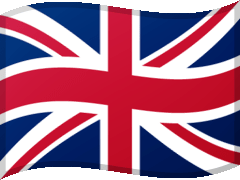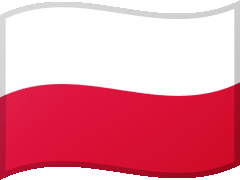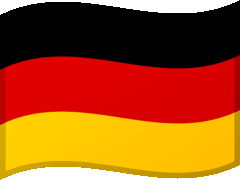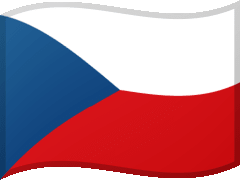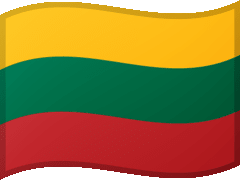Accounts of witnesses
A little over 30 years have passed since the historic breakthrough, when democratic and free-market changes began with the fall of communism. Still, as a society, we know far too little about these events. From a historian's perspective, this is too short a time span to begin serious research, whilst political scientists are more inclined to say that this is way too distant a past and should therefore be the domain of... historians. The layout of the history curriculum in secondary schools also turns out to be unfavourable for the promotion of knowledge about that period. The events of the last decade of the 20th century are placed at the very end of the history education cycle. As a result of this, more often than not, teachers do not manage to cover this material before the end of the final year.
As a consequence of all these circumstances (and because they are different phenomena which are independent of each other) another generation of people is now entering adult life without having - and because of their age could never have had - any personal, biographical experience of the time of the breakthrough, nor did they even acquire school textbook knowledge on the subject.
Paradoxically, the stories about the "close past" of 1989-91 are available to the majority, right at their proverbial fingertips. They are available thanks to the stories of the 50+ generation, parents and grandparents of people born just before and after the transformation.
Therefore, it is worth taking this opportunity to listen to the stories of people who personally experienced the democratic and free-market breakthrough, which, like any change, had both good and bad sides (both are equally important and interesting).
Below we present selected testimonies of the witnesses of the time, with whom we had the pleasure to talk while carrying out the project "1990 / Year One". We hope that they will become an inspiration for your own conversations - the ones you already have with your family and friends, as well as those that are still ahead of you.
(...) A lot of things happened and social energy was mobilised. But we only lived in such a bubble. I was straight out of university, I had contact only with student-intellectual circles, the political elite that was just being formed. It seems to me that we have forgotten that there is also the rest of society. There were communists whom we did not take into account, we thought they did not exist at all. And there were we who thought that everything was simple. We want Europe, we want a democratic state, we want reforms, we want a free market, but we forgot that there is quite a lot in between, between us and the communists. People who accept these changes with fear, who do not feel that much good is happening to them - because nothing good has happened. (...) And these were people who were deeply involved, also emotionally, in the first Solidarity. And they were not necessarily so enthusiastic when the changes began in 1989. They were completely forgotten.
M. from Poland
(…) I don’t judge my activities in politics in a negative manner but I could have spared myself the experience. My colleagues began their enterprise already in 1990 and nowadays they are well off. One of them has a farm with around seven hundred hectares of land, the others are similarly well off… We all started from the beginning, they were patting me on my shoulders saying: “Go and make democracy; we are going to buy tobacconists. There is quite a good tobacconists in privatisation, so we shall buy it”. Then they had about twenty of them, sold them and bought something else. Today they have sold a leasing company worth seventy millions… My friends from Opava came back to Prague, had a coffee and they listened patiently to my enthusiastic speeches. My head was full of talking about democracy I felt I was creating. “Sure, make democracy, we are going to do something more rational”.
J. from Czech Republic
(...) That's how people were and many took the welcome money and went home again because they couldn't be sure: will the border actually remain open or will the reverse gear be switched on and the border be closed again? That wasn't clear at the time. Because we had not yet been reunited. We were on the way there, but there were still many obstacles to overcome. Only the people who had once enjoyed freedom did not want to take that step back again. And so the slogan was, understandably: if the D-market doesn't come to us, we'll go to it. That actually says everything about the attitude of the GDR population. People were eager and hopeful for what was to come. And it's a good thing that things turned out the way they did.
W. from Germany (former GDR)
(...) To be honest, those people who are still saying that it was better to be a part of Soviet Russia, as a rule, are those who are very limited minded. For them, that period was good because they met their physiological needs, and in fact they needed nothing more. They received minimum wages, maybe stole something from somewhere, and have been existing like that. For the intelligent-minded people life in the Soviet system was, if compared to a life of a river, a drainage ditch, where the stinking water was standing still. Clearly, working at that time was very easy. The school plans (there were no copiers at that time, they had to be rewritten by a typewriter) could have been written off by a ten-year-old plan and no one would care. It was a complete stagnation of the society. Secondly, any initiatives were crushed. When I started working, it was in 1982, I was a young specialist, full of all kinds of initiatives. I wrote and drew a booklet by myself and published it. It was called "Protected plants of Molėtai region”. I really thought I would be praised for this, but I was called to Partkom and was almost fired: "How dare you?!" they said, “without being in agreement with the Communist Party secretariat? Why is there no word in this booklet about the Communist Party and the implementation of the directives of the CPSU (Communist Party of the Soviet Union)?”. When you tell about this to teenagers, no one believes that these things were happening. But they really did. We also organized an expedition, gathered scientists and even founded a club (which still exists, it was called "Medumėlis" and it was interested in rare plants). Once I even organized a high level conference in a rural school and again I was called to come to Partkom and again received criticism about not agreeing on it with Partkom in advance: what if the professors saw some ugly things in our area? It was a complete nonsense. I’m really not surprised that the intelligentsia were the leaders of (Sąjūdis) Initiative Group, because for them such life was a really terrible life to live.
S. from Lithuania
